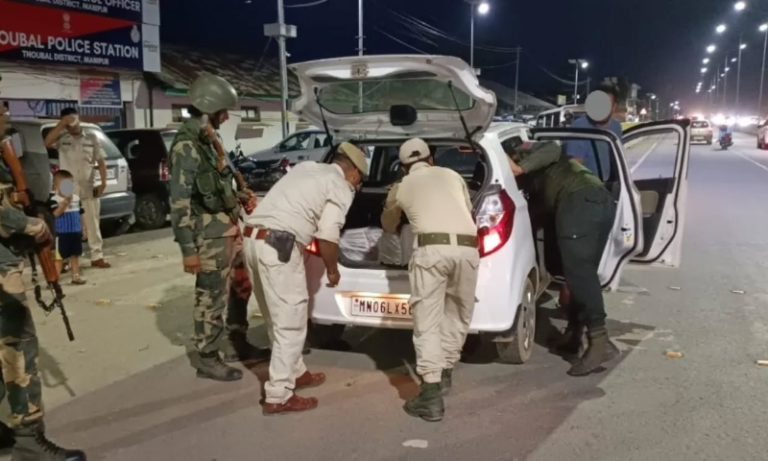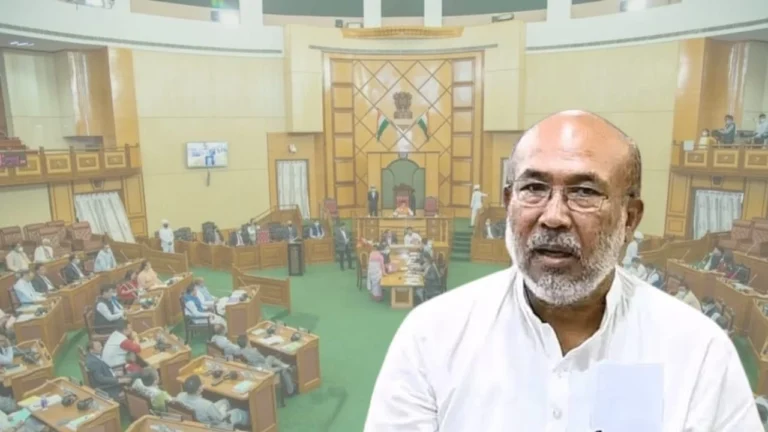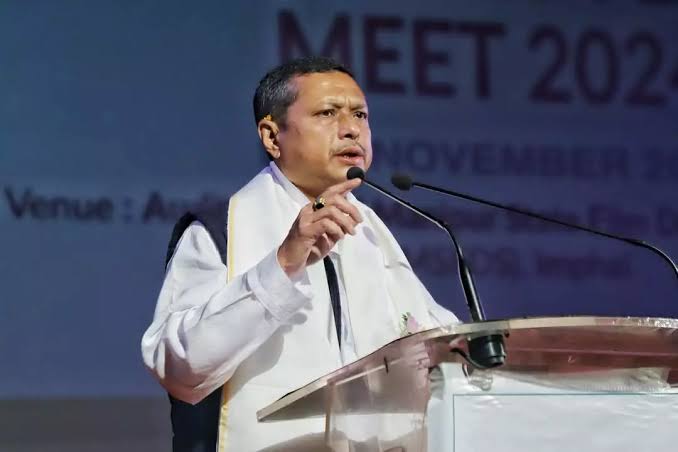Manipur: Recovery of Weapons and War-Like Stores Highlights Security Challenges
Summary of the News Article
In a joint search operation conducted in Manipur’s Imphal East district, security forces recovered 42 weapons and a variety of war-like stores on January 5, 2025. This recovery, executed by the Assam Rifles and state police, underscores the volatile security situation in the region. The discovery of such an arsenal reflects the ongoing challenges related to armed conflicts and tensions in Manipur. It also highlights the importance of coordinated security efforts to ensure stability and peace in the state.
Unveiling the Security Challenges: A Closer Look at Manipur’s Weapon Recovery
Introduction: What Does This Recovery Mean for Manipur?
Imagine finding a hidden arsenal of weapons capable of fueling prolonged violence in an already fragile state. That’s what happened in Manipur’s Imphal East district, where a joint search operation uncovered a staggering 42 weapons and other war-like materials. This isn’t just a headline—it’s a stark reminder of the challenges this northeastern state faces in maintaining peace and security.
In this article, let’s dive deeper into what this operation reveals about the broader security issues in Manipur and how such incidents shape the region’s future.
The Joint Operation: A Collaborative Effort for Peace
Who Conducted the Operation?
The operation was a coordinated effort between the Assam Rifles and the Manipur Police, showcasing how joint initiatives can achieve significant results. Collaboration is critical in a region where armed groups often exploit administrative gaps to perpetuate unrest.
Where and What Was Found?
The operation took place in Imphal East district, an area known for sporadic incidents of unrest. Security forces discovered a wide array of weaponry, including assault rifles, ammunition, and explosives. This haul isn’t just a matter of numbers; it’s a testament to the potential scale of violence that could have erupted if these weapons were used.
The Importance of Intelligence Sharing
Such successful operations hinge on effective intelligence sharing. In a state as diverse and complex as Manipur, gathering actionable intelligence requires community engagement, surveillance, and inter-agency cooperation.
The Broader Context: Why Are Weapons a Problem in Manipur?
Ethnic Tensions and Armed Groups
Manipur has long been a hotbed of ethnic tensions, with various groups vying for territorial and political dominance. These conflicts often escalate into armed confrontations, with militant outfits acquiring and stockpiling weapons to assert their power.
Cross-Border Dynamics
Manipur’s proximity to international borders adds another layer of complexity. Illegal arms often flow into the state through porous borders, making it a challenge for security forces to intercept these shipments.
The Role of Insurgencies
Insurgencies in Manipur aren’t new. For decades, various groups have used weapons to push their agendas, whether related to autonomy, identity, or resistance against state policies. The recovery of such a significant cache of arms underscores the lingering influence of these insurgent groups.
Implications of the Weapon Recovery
Preventing Potential Violence
The recovery of 42 weapons is not just about numbers—it’s about lives potentially saved. Every weapon seized is one less tool for violence, reducing the risk of clashes and civilian casualties.
Boosting Public Confidence
Such operations send a strong message to the public: the government and security forces are actively working to ensure their safety. This can foster trust and cooperation between citizens and authorities, essential for long-term peace.
Weakening Armed Groups
For armed groups, losing such a significant cache of weapons is a blow to their operational capabilities. It disrupts their plans and forces them to rethink their strategies.
Challenges in Maintaining Security
Porous Borders
Manipur shares borders with Myanmar, and this geographical proximity makes it a transit point for illegal arms. Smugglers exploit the lack of stringent border controls, making it challenging to stem the flow of weapons.
Complex Terrain
The state’s hilly and forested terrain provides natural cover for insurgents and makes it difficult for security forces to conduct operations. This geographical advantage often plays into the hands of armed groups.
Community Sensitivities
In a region marked by ethnic diversity, every security action must be carefully calibrated to avoid alienating specific communities. Missteps can escalate tensions rather than resolve them.
Steps Toward Long-Term Stability
Strengthening Intelligence Networks
Intelligence is the backbone of successful security operations. Building robust networks that involve local communities can provide actionable insights and prevent incidents before they escalate.
Modernizing Security Infrastructure
From surveillance drones to advanced weaponry, modern tools can significantly enhance the effectiveness of security forces operating in challenging terrains like Manipur.
Addressing Root Causes
Security measures are vital, but they address symptoms rather than causes. Long-term peace in Manipur requires addressing the socio-economic and political grievances that fuel insurgencies.
Community Perspective: The Human Side of the Conflict
Behind every recovered weapon lies a story of conflict, displacement, and loss. For the people of Manipur, these weapons symbolize years of strife that have disrupted lives and livelihoods. Yet, they also represent hope—hope that with every seizure, the path to peace becomes a little clearer.
Take, for example, the residents of Imphal East. While they may feel relieved that weapons have been taken off the streets, the lingering fear of future violence remains. It’s a complex mix of hope and apprehension, one that defines life in conflict zones.
What Lies Ahead for Manipur?
Building on Success
The recent operation is a step in the right direction, but it’s just one piece of the puzzle. For lasting peace, such initiatives need to be sustained and supported by broader developmental efforts.
Fostering Dialogue
Ultimately, peace cannot be achieved through force alone. Dialogue between conflicting groups, facilitated by neutral mediators, is essential for resolving long-standing disputes.
Empowering Local Communities
When communities are empowered—economically, socially, and politically—they are less likely to resort to violence. Development initiatives that prioritize education, healthcare, and employment can play a transformative role.
Conclusion: A Ray of Hope Amid Challenges
The recovery of 42 weapons in Manipur’s Imphal East district is a significant achievement, but it’s also a reminder of the challenges that remain. As the state continues to grapple with complex security issues, coordinated efforts between the government, security forces, and communities will be key to ensuring lasting peace.
This operation isn’t just about confiscating weapons; it’s about reclaiming hope and building a future where Manipur’s people can live without fear.
FAQs
- What types of weapons were recovered in the operation?
The operation led to the recovery of 42 weapons, including assault rifles, ammunition, and explosives. - Who conducted the operation in Imphal East?
The Assam Rifles and Manipur Police conducted the joint operation. - Why is Manipur prone to such security challenges?
Ethnic tensions, cross-border dynamics, and insurgencies contribute to the volatile security situation in Manipur. - How does this operation impact armed groups in the region?
Losing a significant cache of weapons weakens their operational capabilities and disrupts their plans. - What steps can be taken to ensure long-term peace in Manipur?
Strengthening intelligence networks, modernizing security infrastructure, addressing root causes of conflict, and fostering dialogue are crucial steps.




